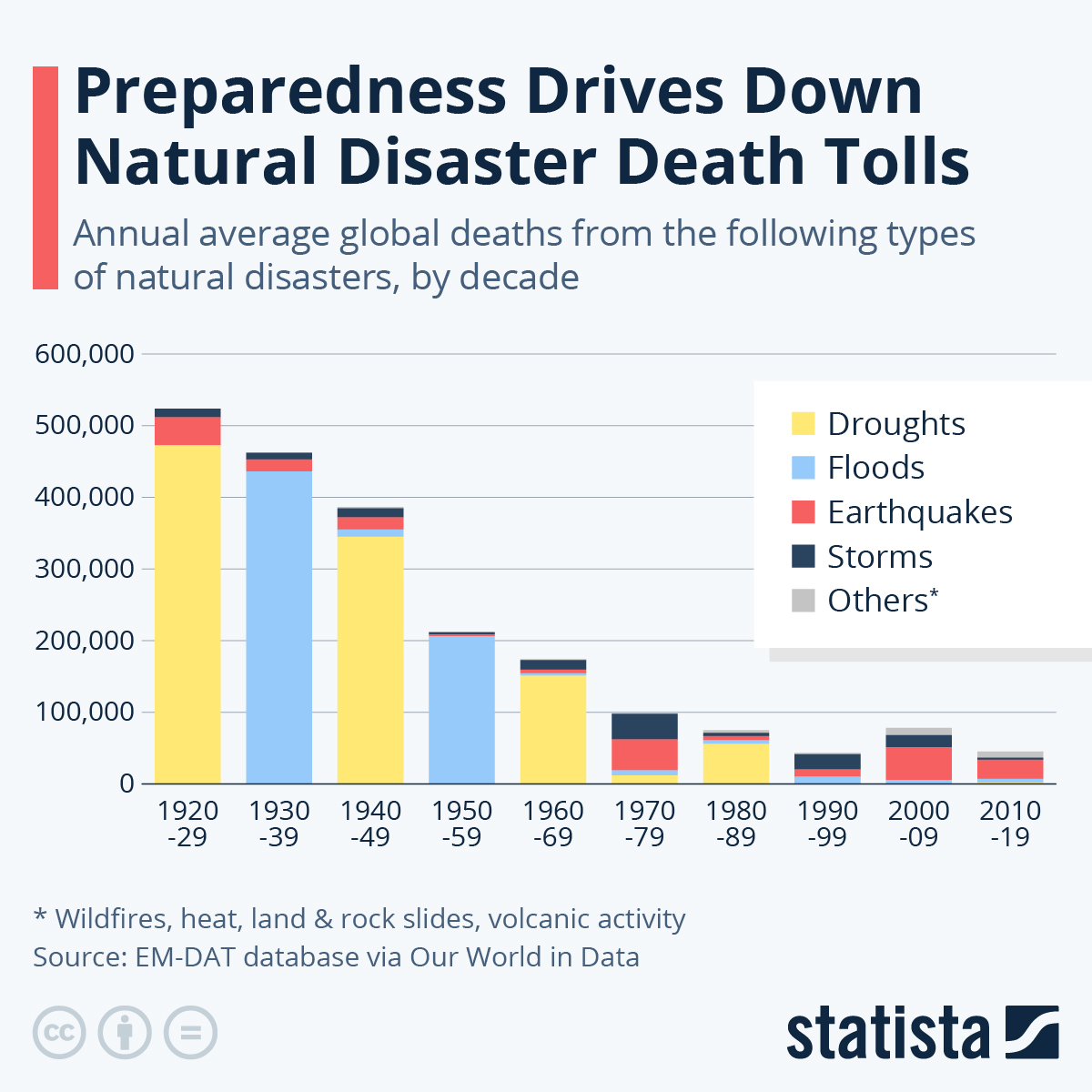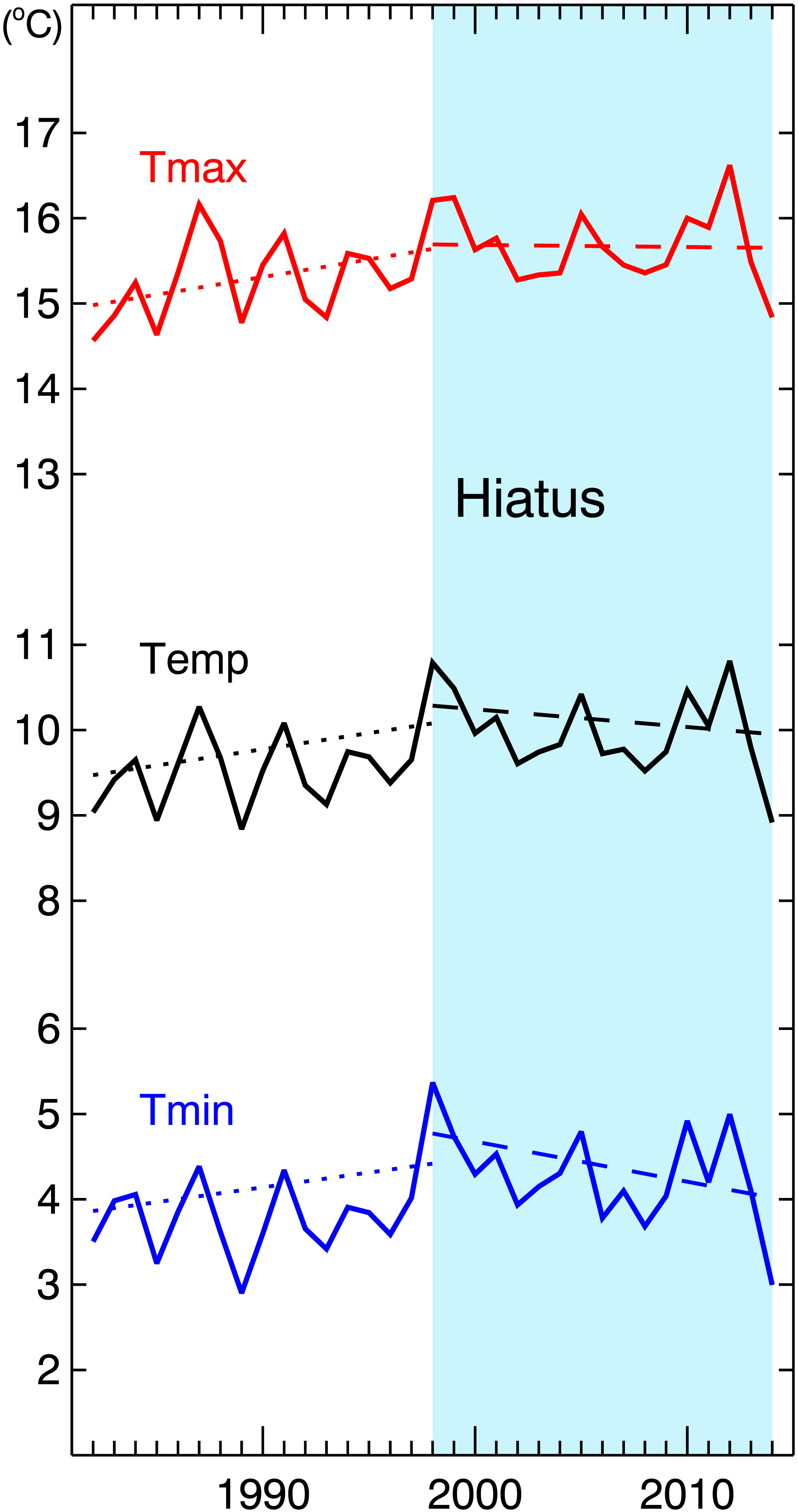I'm personally optimistic given what we're seeing happening in China in terms of energy transition. China has lots of scientists who must understand what's happening with the climate, and what to expect. I don't get the impression that there is nihilism in China like there is in the west, so they must think that this problem will be tractable.
I do expect that we will see a lot of global disasters happening as a result of climate change, and life will get hard around the world as a result. But I also hope that enough of humanity will be able to come together to push through these problems and ensure that our civilization continues.
I don't think there's any value in having a fatalistic view on this. We can't know that we'll make it, but all we can do is work towards making the world better and hope that what we do will be enough.
lol no. most westerners still have 0% class consciousness and their main aspiration in life is to become a fucking landlord.
My primary concern is the Methane Clathrate Gun Hypothesis.
I think it's unlikely that it will happen, but in short, there is a very real and non-zero chance that a series of massive explosions will trigger globally that may possibly turn Earth instantaneously (at least on the scale of a human life time) into Venus. Billions and billions of tons of methane releases from accelerating global warming that could render life on Earth itself extinct.
If I didn't think that that global socialism is a guarantee in my life time, I would have offed myself by now.
My mindset is diamond-willpower forged in the core of a neutron star.
Maybe. This world is rapidly deteriorating, and we've likely already set in many feedback loops that, even if we did a global communism tomorrow at noon, we'd still suffer severe consequences.
This doesn't mean we shouldn't try. We absolutely still have a chance at humanity's survival, and a good one at that.
Edit: Downvoters please reply. For clarification, I am just arguing against the claim that climate change will "kill us all" in the literal sense.
Cold weather still kills way more people than hot weather. Warming has decreased the overall temperature-related deaths. 650,000 fewer people die per year than in the 80s and 90s. 18 million die per year from cold weather, 2.2 million from hot weather.
https://www.forbes.com/sites/joshuacohen/2023/07/19/excessive-summer-heat-can-kill-but-extreme-cold-causes-more-fatalities/?sh=135860881d88
Interestingly, during the 2000-2019 period examined in the study, while heat-related deaths rose, deaths from cold exposure fell. And they decreased by a larger amount than the increase in heat-related fatalities. Overall, researchers estimated that approximately 650,000 fewer people worldwide died from temperature exposure during the 2000-2019 period than in the 1980s and 1990s.
World population has grown (4x) but natural disaster deaths have decreased to a fraction (less than 1/10th or less than 5,000 per year). This is because we are better prepared. A 40+x increase is required to reach 1920 levels per capita. And that 50,000 per year would still not be able to beat the 650,000 fewer people dying from temperature per year.
Show
This is starting to reach the capitalist apologia end of climate change discussion. As long as we can prepare well enough, things won't get that bad. Kill us all is stretch of course but we shouldn't just downplay climate change and the disastrous conscequences it will have on the world and our society. Especially considering the people who are responsible for the majority of all pollution are not the people who will face the most direct consequences.
not the most well read dude, but my understanding is that as there is more energy in the atmosphere, there will be more unstable weather patterns - and will lead to crop failures.
this will most likely hit the global south and nations that are less developed (exploited nations such as the global south) harder than the developed nations. people migrating because they can't live in the deadly heat, or not having enough food, or something about florida going underwater (iirc they won't insure houses in florida anymore because of global warming and rising sea temperatures.)
https://www.cbc.ca/news/canada/toronto/ontario-climate-change-impact-assessment-1.6964662#:~:text=By%20the%202080s%2C%20the%20report,average%20of%20about%2016%20days.
edit i don't think people will want to lay down and die from the inhospitable environment, they will probably move - i don't think looking at the death toll and saying "see there are less deaths from the climate therefore climate change is not significant" is a good form of analysis, it seems like a bit of a kneejerk reaction, that needs more inspection - like quality of life, crop failures, if you can go outside without heatstroke, these things are gradually ramped up on a scale
I have some friends who live in Florida and, due to work, have to go on the news and say that although Florida is being hit by climate change that it's still a good place to buy a home. But, privately, they all know that shit is going down and it's a terrible place to purchase a home.
For any comrades in Florida who expect to live longer than a decade or two, don't do it.
Changes in the climate might decrease yields, however CO2 concentration directly increases them. This should recover 60% to over 100% (wheat increased, soybean fully recovered) of the losses due to climate change depending on the crop from 2000-2080 according to NASA.
So if you take the 50% loss of corn due to lack of moisture stated in your report, recovered by 60%. It should be ~20% decrease (time period probably starts from 2020s in the report, so this calculation is off), while wheat will increase by 10% overall according to NASA.
Farmers may switch to the more productive crops to compensate.
https://www.nasa.gov/technology/nasa-study-rising-carbon-dioxide-levels-will-help-and-hurt-crops/
I don't mind taking the study you linked at face value, but I have to ask, taking a step back, why it matters that we don't be as alarmist over climate change. You agree that it's man-made and still a problem, from what I understand, but I don't see a scenario where being alarmist about it to demande real, rapid, effective change is a problem and creates future issues. Less climate change can only be good, I would rather put a stop to temp increases over the next 5 years than slow temp increases in that same timespan, you know what I'm saying?
The medieval warm period was warmer than present and society flourished during that time. This period lasted from 900 to 1300 AD.
https://est.ufba.br/sites/est.ufba.br/files/kim/medievalwarmperiod.pdf
https://www.scmp.com/article/700638/china-gives-history-lesson-warming
Chinese scientists say that Chinese society prospered during warmer times.
From the prosperity of the Shang dynasty 3,600 years ago to the ruin of the Bronze Age, the cultural peak of the Tang dynasty in the seventh to 10th centuries and the subsequent ravages wrought by horsemen from the north, Chinese civilisation has reached its highest points when temperatures have been warmest and its lowest points when they have cooled.
Wang Zijin , an environmental historian at Beijing Normal University, said the relationship between temperature and success was no coincidence. When the weather cooled, agricultural output fell, wealth contracted, discontent rose and China became more vulnerable to invasion from the north.
'In the long term, warming may not be a curse but a blessing [to China],' he said. 'According to what happened in the past, if the temperature continues to rise in the future we may not see the return of elephants, but it will be very possible that rice and bamboo can again grow along the Yellow River. Xinjiang , Gansu and Inner Mongolia will become much more habitable than they are today.'
This doesn't really answer my concerns and I think looking at more continental climates with summers and winters, further away from the equator is looking at a very narrow amount of data. Countries closer to the equator will not see these benefits from a warmer climate. A few years ago, Pakistan saw a devastating weather in the summer, with scorching temps above 45C as well as very high relative humidity (far above what tropical climates usually see), effectively turning the air into an oven.
Mind you, climate change is not solely about warming temps; the biggest part of it is it makes the weather simply unpredictable; farmers can't determine what they should plant anymore and when. Canada right now is having a cold snap, while Europe is seeing summer temperatures. We don't know what summer will look like in the future, one year it could be unbearably dry and droughty (2022) while in other years, it can be cold and rainy (2019). This leads to droughts one year, and floods the next. Climate change is the reason there was a cold snap north of the equator in January, the polar vortex could not be contained and spilled down south due to changing wind patterns.
Certainly people living in colder climates will be happy that it gets a bit warmer. People living in scorching heat right now will not.
That first study you linked about the Medieval Warm Period was written by just one guy (wonder why he couldn't get anyone else to co-sign his paper) and they're basically climate change deniers, not "we shouldn't be alarmists"-ers. This makes me wonder why exactly you would point to these fringe scientists, who run against almost the entire body of science, as trustworthy sources if you're not a climate change denier yourself. I don't have time to look deeply into Easterbrook right now, but I found this:
Easterbrook is a regular speaker at the Heartland Institute‘s International Conference on Climate Change. The Heartland Institute and its conference sponsors have collectively received millions of dollars in funding from the fossil fuel industry.5 (https://www.desmog.com/don-easterbrook/)
All climate change deniers are sponsored by the fossil fuel industry, if you follow the money back up enough, you'll find they all have an agenda.
That first study you linked about the Medieval Warm Period was written by just one guy (wonder why he couldn’t get anyone else to co-sign his paper) and they’re basically climate change deniers, not “we shouldn’t be alarmists”-ers.
The work I linked is not a study. It cited many studies on the Medieval Warm Period.
I think you are basing him being a denier on what he said in 2013, it's about the haitus and he's acknowledged warming in the 1900s. (“Global warming ended in 1998. […] There has been no global warming in 15 years.”). This was said at the end of the 15-year hiatus (1998-2014). The hiatus was even acknowledged by the IPCC in its 2013 report.
And here's Chinese climate scientists acknowledging a decrease in temperatures in North America during that time period in a peer-reviewed journal. So there was some substance to what he was saying at the time. https://agupubs.onlinelibrary.wiley.com/doi/full/10.1029/2018EA000443
In North America, the minimum temperature experienced an obvious decline during 1998–2014
Show
Edit: I'll respond to the first part too in a later reply.
Is your perspective that climate change is happening, but we shouldn't be alarmist over its effects? Asking in good faith comrade.
Climate change is a changing process. China and Africa can do alot to build forests for carbon capture and maybe create a timber industry that can be carbon negative. Hopefully we can do something like that in South America. A lithium economy is emerging and maybe just the ecological contraints will just make capitalism stop making sense. Capitalists will make decisions based on faulty assumptions. Being delusional is not a good way to keep power for long. The contradictions between assumptions and reality lead to bad decisions.
There will be no real socialism for several reasons.
By most metrics i'd give favour to China over comparable projects; China has a 90% house ownership rate in a country of a billion+ people, has a network of high speed rails all over it and subway systems in most major cities.
Compare China with the capitalist project? Ok, China is clearly winning in just about every conceivable way. Were you trying to make some sort of point?
About China I heard somewhere the opinion that there is half socialism, half capitalism, and not real socialism.
That's not how it works. A system cannot be "half socialism half capitalism" as these two concepts quite literally contradict each other.
Socialism is the process of transition from capitalism to communism. It's defined by a society where the proletariat has become the ruling class, after having the former ruling class overthrown through revolution; a society where the state serves the interests of the workers and naturally withers away (as Lenin puts it) as the concept of class begins to disappear (as we get closer to communism). For more info on this, you can read state and revolution, by Lenin. As for dialectical and historical materialism, you can read Socialism: utopian and scientific, by Engels and Dialectical and Historical Materialism, by the man of steel himself.
Capitalism is the system that came after feudalism and before Socialism. It's defined by giving full power to the Bourgeoisie and, contrary to under Socialism, the state serves the interests of the Bourgeoisie. Here's a (very) basic explanation of each one:
-
Early capitalism (idk the marxist term for it): Small competition among national bourgeoisie.
-
Monopoly Capitalism: As the nature of Capitalism naturally leads to monopolization, the means of production are at a large scale concentrated in the hands of a few.
-
Imperialism, the highest stage of Capitalism: Capitalism needs infinite growth and expansion to survive, so it exports capital (workers, firms, factories) abroad in order to expand and increase profits.
My definitions might be slightly incorrect, i haven't had the time to read theory in a while due to life circumstances
One could assume China is revisionist for adopting a market economy instead of a strictly planned economy, like the one in the USSR and former Socialist bloc, but this argument is fundamentally wrong, since it's extremely idealistic to think of Socialism as a fixed set of rules that must be forced upon the material conditions of said society and not the other way around (and that's why the "not real socialism" argument doesn't even make any sense). The truth is that, while it'd have been more desirable for China to keep a planned economy, opening up to the West and its capital (under heavy supervision and control of the CPC) allowed China to flourish and become the very industrialized nation that it is today, and I think if Mao could see what his country became, he would be very proud.
these two concepts quite literally contradict each other.
Contradiction is the engine of history. Marxist analysis begins with contradiction. If you think socialism will be free of contradiction then you aren't using dialectical analysis, if you think capitalism is free from contradiction then you are completely out of touch. Capitalism is a system that thrives on contradiction.
I'm not arguing that China is "half socialist, half capitalist," I'm not qualified to make that determination, but it sounds overly simplistic to me. What I am saying is that two contradictory systems can exist simultaneously and may even be the driver to Chinas incredible and undeniable economic success. At the same time it is a country that is rife with contradictions. Resolving contradiction makes new contradictions. Our goal is not to create a society free of contradiction, this is mathematically impossible. Our goal is to create a more fair, progressive, industrious society where the rewards of work goes to the workers. In order to do this we will have to become adept, as China has, at managing contradiction.
Thanks, comrade, you are correct. It wasn't my intentions to say Socialism is free of contradictions, it's just that the "half socialist half capitalist" thing never made sense to me.
By "contradict each other" I meant they're completely opposing forces. They either struggle to or cannot coexist within the same superstructure i.e how can you have the proletariat and the bourgeoisie as the ruling class?
From my understanding, China is, right now, using the Capitalist system (and bringing along all its contradictions) to build productive forces in order to pave the way for Socialism, as Capitalism is the system whose contradictions will create the conditions for Socialism to flourish; it's now in a very early stage of Socialism.
Like I said before, I haven't had much time to brush up on theory as I used to, but I will make sure to revise my knowledge on Materialism like you pointed out, comrade.
Thanks for hearing me out comrade, I'm a bit of a stickler when it comes to dialectics and I worry about people who use the term as a shibboleth without really understanding the methods. I don't think this is the case with you, you are open about your self criticisms which is the key to personal growth.
No ahahah you aren't anything like that, it's always good to hear out criticism from people more educated than me. Thanks for correcting me comrade, I will be re-reading this soon.
Well, that opinion is definitely wrong. China isn't perfect (living in a world with less desirable material conditions does that), however, it's the Socialist nation that has managed to develop itself the most, so there's that. The reason why it survived the 80s and the 90s wave of color revolutions was because it learned from the mistakes of the USSR and the eastern bloc.
Also, yeah there was a lot of incompetence in the communist parties of both the USSR and the Eastern bloc in general, but there were also many principled communists as well. There was also a lot of friction between its countries, for example, Albania siding with China and denouncing the USSR and the events that led to the Prague Spring in Czechoslovakia.
Well, let's see what the final result will be? Success or failure :-)
Its been succeeding for over 100 years now, let us know if it fails!
From my perspective, the Chinese project as evolved into something like trying to wrap a great socialist party around a capitalist economy in an effort to mitigate the disastrous consequences of capitalist development and prevent the state from becoming subordinate to market forces. Capitalism always requires a strong state in order to function. Western nations chop up state power so that market forces determine the agenda of imperialism. Socialist or burgeoning socialist nations seem to try to keep the state as strong and centralized as possible, while (somewhat attempting) discouraging the individual accumulation of political power to stave off corruption and consolidation of personal interest. This seems to be one of the main points of failure of this model, but the extent to which the country is successful is the extent to which they are able to persist and project the possibility of socialist society into the future.
I'm open to critique of this analysis as I'm aware of some assumptions present in my method.
-
There are always halfway points to devolopment in society; go read 'Critique of the german ideology' by Marx, he goes into stages of devolopments.
To call it that would actually be exactly right, minus the 'real socialism' bit; My question is how do you build socialism? All at once? Was industrialization built in one motion? Slavery abolished in one step? Of course not, its a project to work towards; China is working towards it. It is 'real'.
Stalin was poisoned, and the USSR was betrayed and destroyed.
Just because one socialist project collapsed (under intense seige of most global super powers) doesnt mean all are doomed to fail, or not worth pursuing.
The chinese socialist project lives and is thriving, its not in an 80s death spiral like the USSR, its actually pulling ahead of america and is now the biggest economy on the planet due to socialist planning; this enables it to keep wages low due to the fact houses are all owned by the workers.
Like in Shenzen, rent is 80% lower than in London on average; if you imagine how that reduces labour costs, when you dont need to pay rent. It increases competitveness. Shenzhen is also a much nicer city than London.
China can also be betrayed and won in a hybrid war. Everything can change for the worse after a while if the enemies and traitors try hard.
The same premises exists for any other country on the planet, its an empty statement.
You could get hit by a car tomorrow, why try at all?
This
Hello1000wrecker account has already been banned from its own instance.Try asking some drug lord to share at least half of his money and power with you. What do you think he or his gang will do to you? :-)
I dont think a drug lord is comperable to a socialist project honestly
Bad comparison imo and it just shows how much a revolution is needed. We don't simply go to the ruling class and ask them to leave peacefully, we demand that they leave their position of power.
After such a demand, you will probably be quietly sent to the afterlife somewhere and somehow, without noise or witnesses. :-)




















